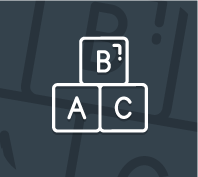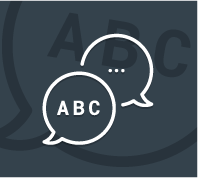If you don't have time to read this article but would like to know whether our software can help - it can. You can buy access to our software and get started immediately, 365 days-a-year.
Buy Preparation Software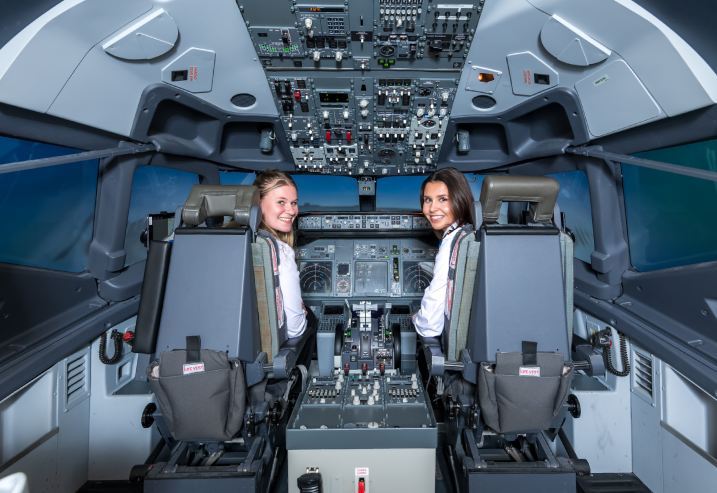
European Pilot Selection & Training, styled as EPST is a well-known aviation training organisation that developed the COMPASS and Advanced COMPASS computerised pilot aptitude tests.
The organisation offers an Ab-Initio Pilot Training Program, facilitated by Global Aviation S.A. in Greece, Aero Locarno in Sweden and OSM Aviation Academy in Norway and Sweden.
Additionally, EPST also provides type rating training for the Boeing 737NG and Airbus A320 using fixed-base simulators, and offers an Airline Jet Foundation Course, which combines JOC and MCC.
The EPST assessment and selection process includes three stages:
Click any stage to scroll to the relevant part of this Knowledgebase article, or continue reading below.
Computerised pilot assessments (often also referred to as 'Computerised Pilot Aptitude Tests') are those assessments designed to evaluate the competencies required of a professional pilot and typically take the form of a series of separate tests (known as a 'Test Battery') undertaken either on-site at a facility, or remotely using a desktop or laptop computer.
These assessments differ from other types of aptitude tests used in other industries, typically aiming to evaluate competencies (or skills) such as Multi-Tasking, Motor Skills, Reaction Time, Spatial Awareness and Memory Recall.
Evaluation of the above competencies is often achieved using a variety of different methods and mechanisms - for example, memory recall may be assessed with a task to memorise and recall information displayed on screen, whereas multi-tasking may be evaluated by asking the candidate to perform multiple concurrent tasks using a keyboard and mouse, or motor skills may be appraised by asking the candidate to center a ball within a targeted area using a joystick.
In some cases, the candidate may be required to undertake two attempts of each test, or to undergo a Verification Test some time after completing their original pilot assessment.
On completion of assessment, a candidate's score may be compared to that of other candidates who have previously undertaken the assessment (known as Norm-Referencing) or, their scoring may be assessed against a defined criteria or pass mark (known as Criterion-Referencing).
EPST incorporate a computerised pilot assessment produced by COMPASS in to their selection process.
This pilot assessment is undertaken at an assessment centre, completed by the applicant on a computer with a joystick.
In particular, this assessment is constructed of a Test Battery which can include modules referred to as Slalom, Bearings, Task Manager and Control amongst others.
Shown below are depictions of some of those parts of our software which realistically simulate and permit preparation for modules of the COMPASS pilot assessment:

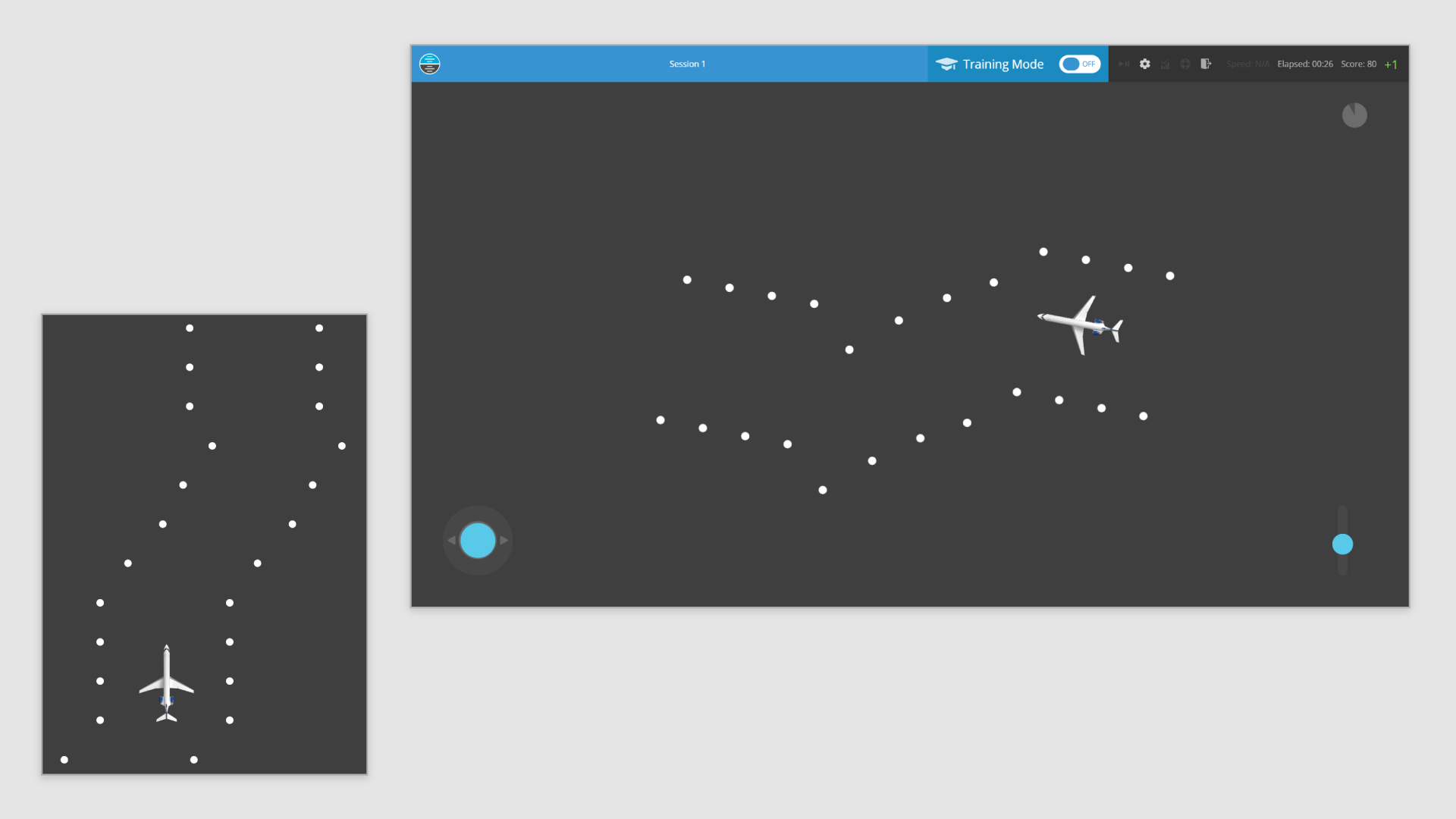
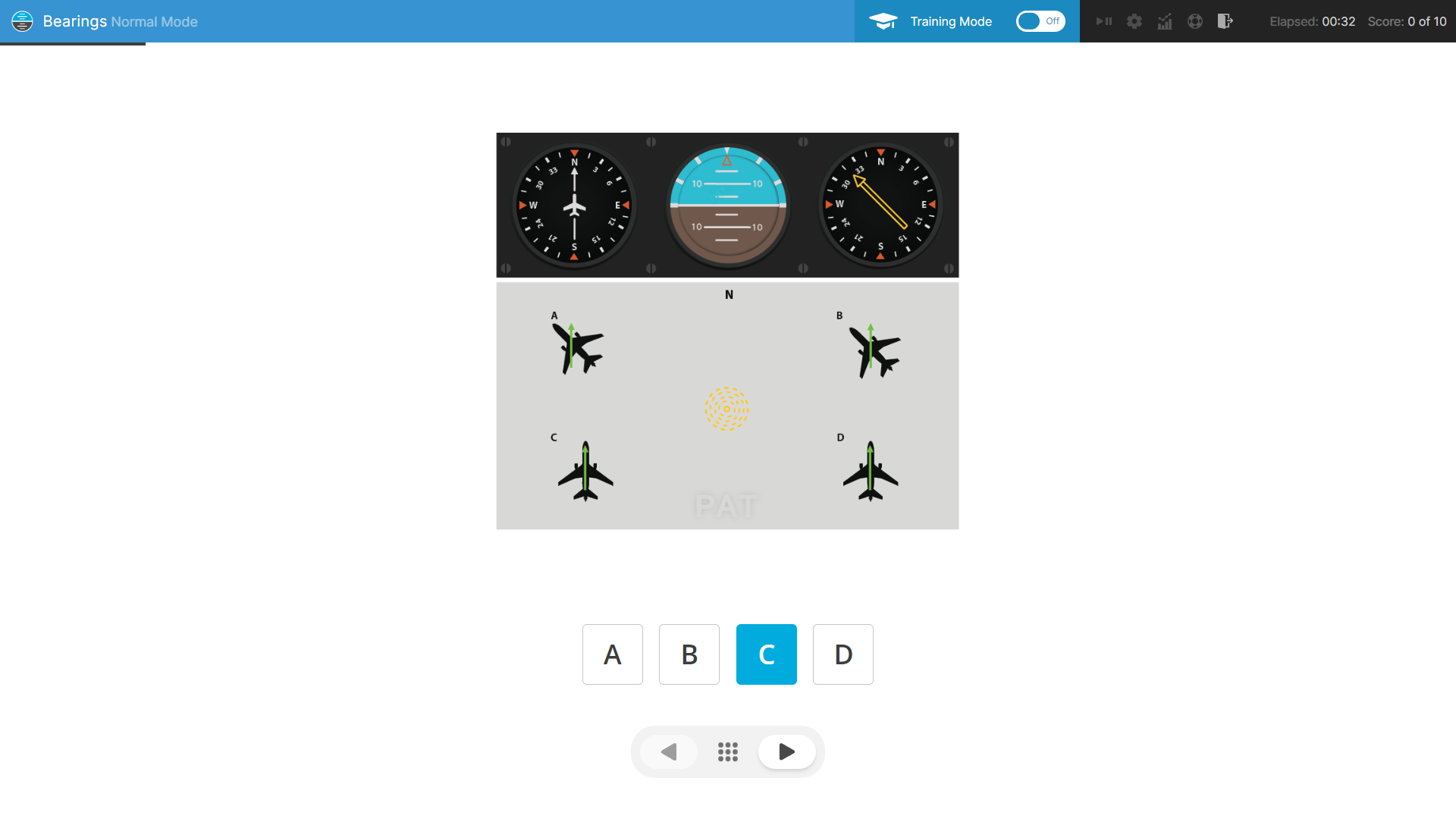
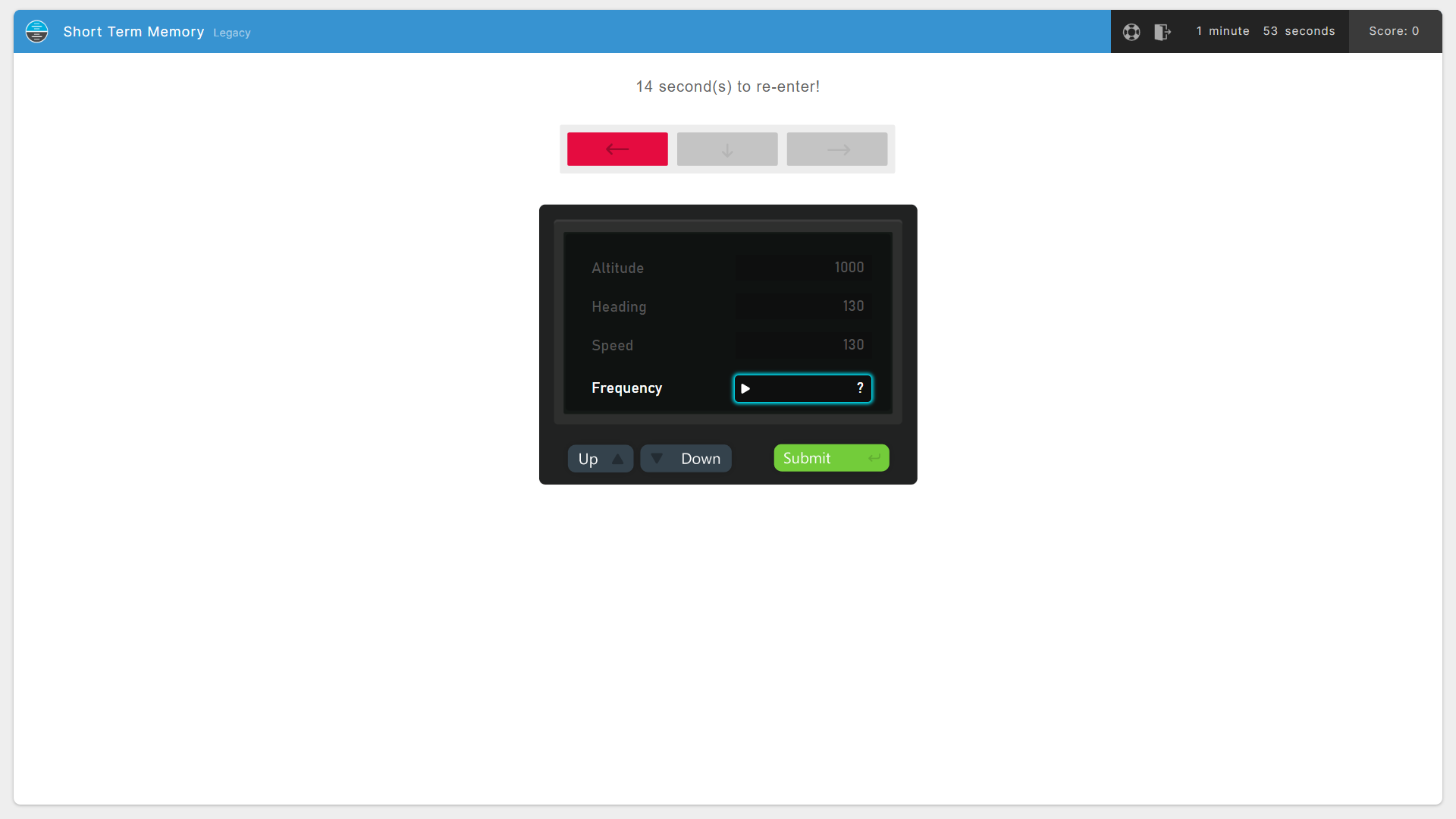
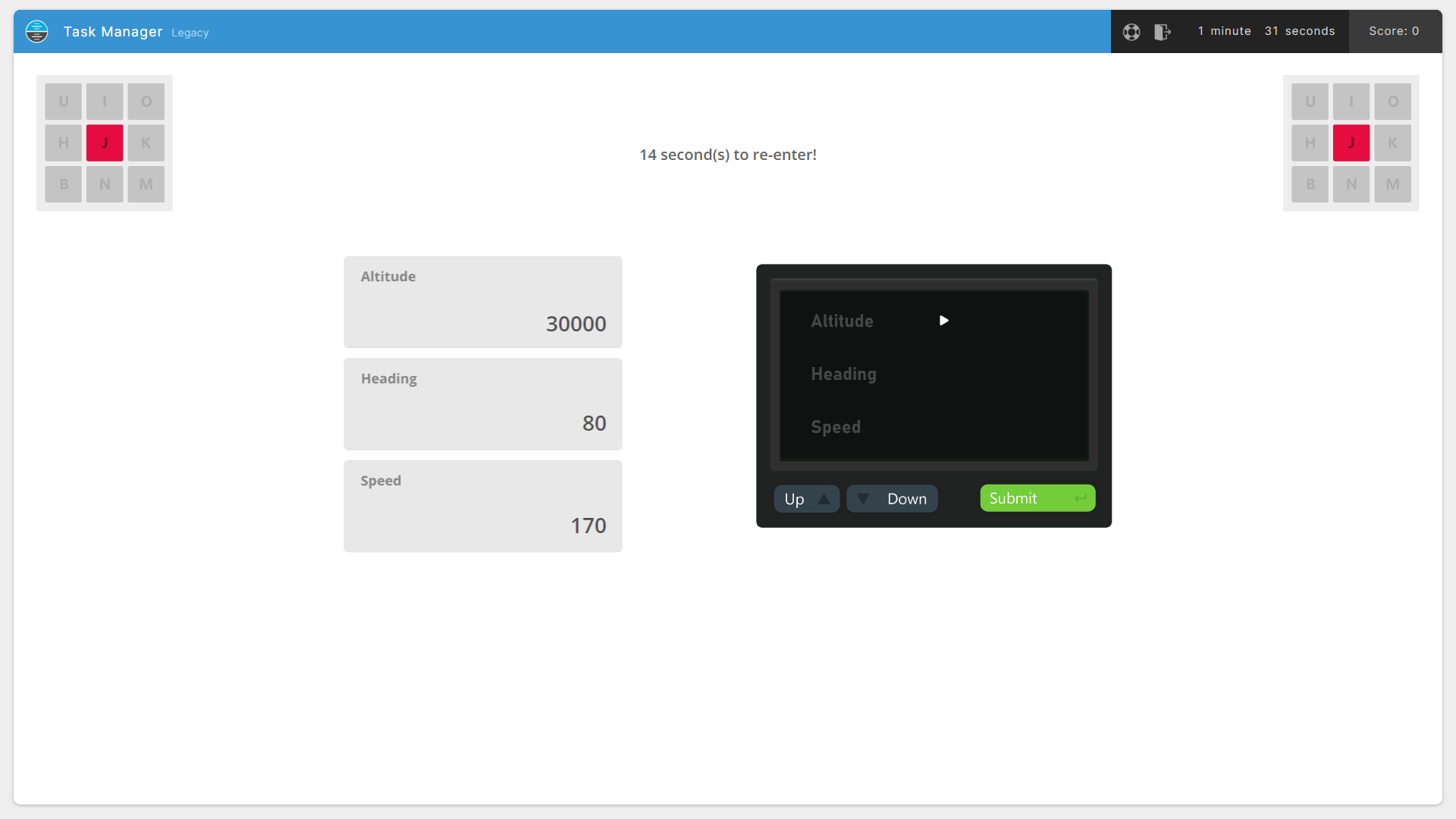
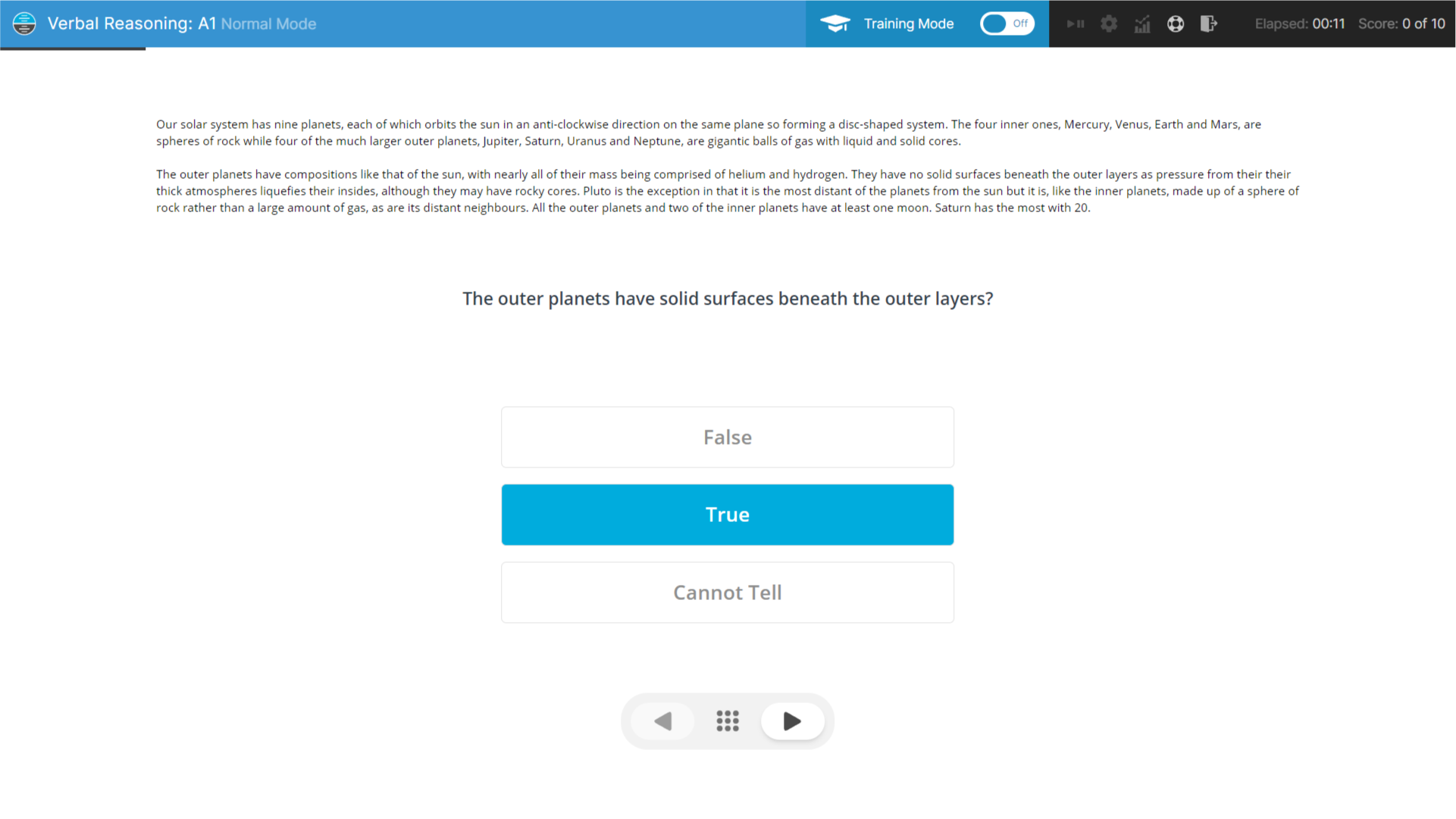
To prepare effectively for this part of the EPST selection process, it is recommended to both familiarise yourself with the methods and mechanisms employed, and to improve those competencies which are evaluated, in the COMPASS computerised pilot assessment.
Our software provides realistic simulations of this assessment contained within a section dedicated to EPST, accompanied by Explainer Videos, Visual Walkthroughs as well as the provision of detailed feedback regarding your Performance, and how it compares with other applicants.
To further your preparation, it is also recommended to create a Preparation Strategy specific to this assessment using the CoPilot Wizard and establish Targets to be achieved prior to undertaking evaluation.
A simulator assessment is an evaluation which takes place in a fixed or full-motion flight simulator that replicates both the cockpit and flying characteristics of modern commercial aircraft (such as an Airbus A320 or Boeing 737), and which permits assessment of applicant aptitude.
Incorporating a simulator assessment into a selection process enables the flight training organisation to:
- Evaluate Aptitude and Potential
- Assess the candidate's ability to quickly learn and apply basic flight control skills in a simulated environment.
- Identify any natural aptitude or potential for piloting that the candidate may possess.
- Assess Cognitive and Psychomotor Abilities
- Evaluate the candidate's hand-eye coordination, spatial awareness, problem-solving skills, and ability to multitask.
- Determine if the candidate has the cognitive capacities required to effectively operate an aircraft.
- Ensure Safety and Suitability
- Assess the candidate's responsiveness to instruction and ability to follow procedures.
- Ensure the candidate has the necessary aptitude and basic skills to safely progress through the flight training program.
In a simulator assessment such as that conducted by EPST, candidates are placed within a realistic flight simulator, typically with an instructor whom explains the basic operation and functionalities of the simulator.
The candidate is tasked with performing a series of standard flight manoeuvres and responding to simulated in-flight scenarios, thus enabling the instructor to closely observe the candidate's aptitude, decision-making abilities, and overall potential for successfully completing the rigorous pilot training program.
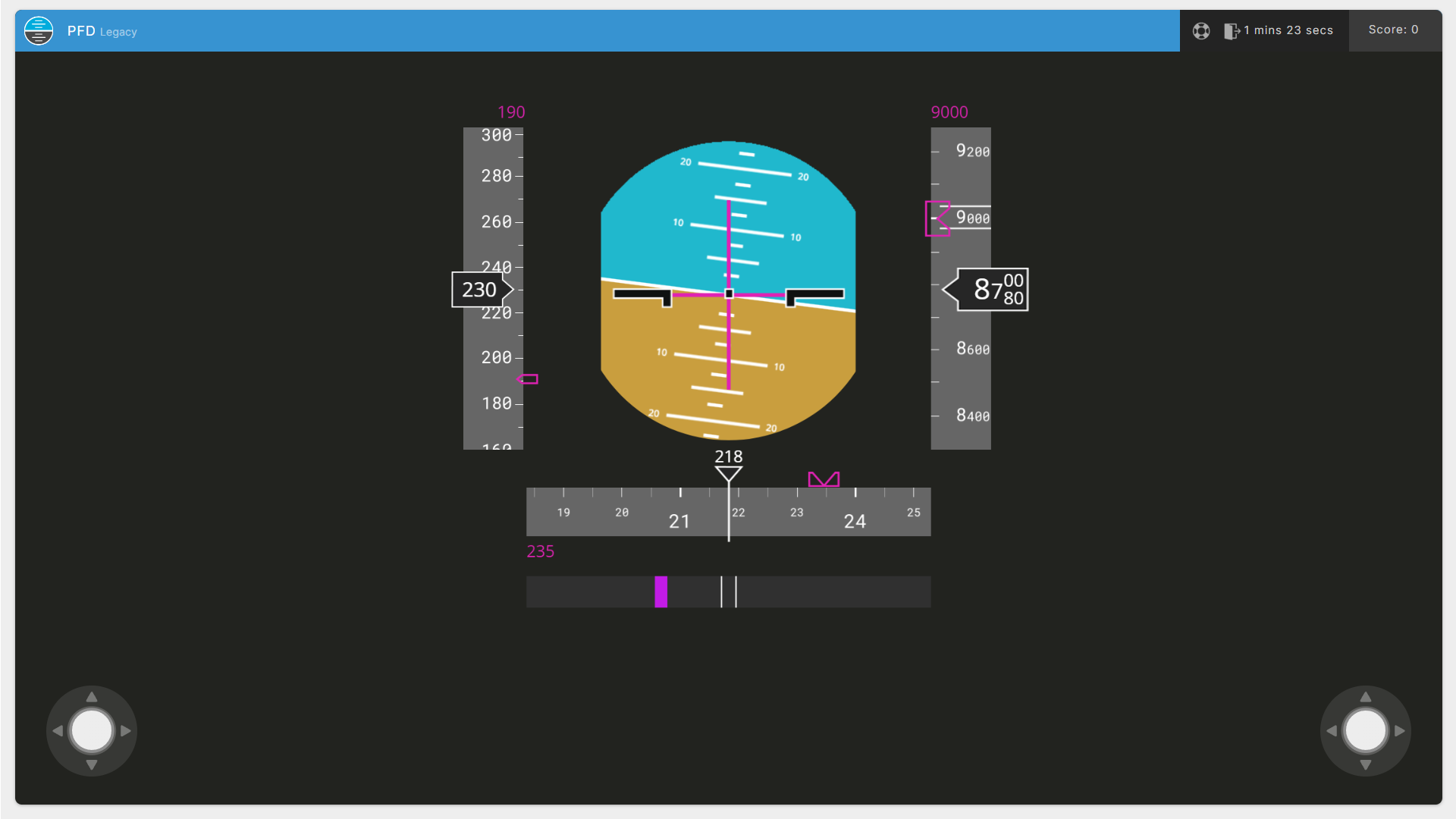
It can be quite challenging to prepare for this stage of the selection process, however, it can beneficial to improve your Motor Skills using our software prior to your evaluation in the simulator.
We would recommend using our PFD activity to improve the above competency, and to familiarise yourself with a PFD (Primary Flight Display).
This instrument is common to all modern commercial aircraft and depicts aircraft attitude, speed and altitude, and will be a key point of reference for maintaining control of the aircraft when in the simulator.
A competency-based Interview is a type of interview that permits an individual or organisation evaluating the applicant to quickly and easily assess the candidate's abilities, attitudes and personality.
During the assessment of pilot candidates, due to the competitive nature of the profession and subsequent high numbers of applicants, competency-based interviews are heavily employed.
In a competency-based interview, a series of questioning is used that enables the candidate to demonstrate their experiences and actions which indicate abilities, attitudes and personality which may be suitable for the role that they're applying for - e.g. a position within a cadet scheme, or as a First Officer in an airline.
In flight training organisations such as EPST, these types of interviews are often employed due to the candidate's lack of role-related experience.
Due to their lack of role-related experience, these interviews provide the candidate with an opportunity to demonstrate how they have approached situations, pursuant to their attitudes and personality, or utilised their abilities to identify and resolve problems in the past.
When demonstrating their abilities, attitudes and personality, the individual or organisation evaluating the applicant may then easily assess their suitability for the role of a professional pilot, or in this case, to embark on a training program with the flight training organisation.
When assessing applicants for their professional flight training courses, a flight training organisation like EPST may choose to incorporate questioning on the following competencies in their competency-based interview:
- Aviation Knowledge
- Problem Solving and Decision-Making
- Motivation and Commitment
- Communication and Teamwork
Questions that may be asked during a competency-based interview which can help an applicant to demonstrate their competencies in the above areas can include:
When preparing for a competency-based interview within any industry, the most commonly offered advice is to utilise the STAR Technique, which is a method of constructing and articulating a response that satisfies the questioning posed to the applicant.
The STAR Technique aids in structuring responses to competency-based interview questions, and consists of the following structure:
- Situation
- Task
- Action
- Result
Each of the four parts of this structure enable applicants to provide an answer which satisfies a question posed, helping them to effectively and easily demonstrate their abilities using a real-world example.
Below is an example of how the STAR Technique may be used to answer a question posed in a competency-based interview.

With a section dedicated to EPST Pilot Assessment, our one-of-a-kind software represents the ultimate way for you to get prepared.
By leveraging our cutting-edge software, including those unique features and extensive guidance not offered elsewhere, you can immerse yourself in realistic simulations, master those competencies assessed, and familiarise yourself with the methods and mechanisms of assessment.
Our software is backed by our meticulous attention to detail and deep expertise as experienced commercial pilots, empowering pilot applicants to approach their assessments with confidence and helping to propel them to supersonic levels of success.
Start using our incredible preparation software immediately on PC, Mac, iOS and Android by purchasing a subscription:
Buy Preparation SoftwareWith increasing prevalence and awareness of computerised pilot aptitude testing in pilot assessments, it's never been more important to ensure that you can fly past the competition. This is made easy with features unique to our software:
Discover the key advantages of using our cutting-edge software:
How can I prepare for my EPST pilot assessment?
The best way to prepare for your EPST pilot assessment is with our latest industry-leading software, developed over 5 years by experienced airline pilots. Including over one-hundred realistic exam simulations, personalised Preparation Strategies which guide you through your preparation, immersive Explainer Videos, customisable Training Modes that manipulate your simulation environments, comprehensive Instruction and Guidance, and extensive performance feedback which incorporates unique features such as Predictive Scoring, a Strength & Weakness Map and Colour Coding, our unique software will help you to accelerate improvement of your problem areas and fly past the competition in your EPST assessment. The software runs in a web browser, is compatible with laptop, desktop, tablet and smartphone, and is complimented with extensive support, provided from 9AM to 9PM GMT. To purchase a subscription to our software and start preparing for your pilot assessment at EPST, as well as many other flying schools, click here!
What is the pass mark for the EPST pilot assessment?
Many pilot assessments, and computerised pilot aptitude tests, do not have a fixed threshold (or pass mark), but rather evaluate the pilot candidate's overall performance and suitability for the role. Rather than worrying about a specific pass mark, the better approach is to focus on comprehensive preparation that maximizes your chances of success. Our industry-leading pilot preparation software is designed to help you to prepare for your EPST assessment, regardless of the pass criteria, by helping you to develop the essential sklls, familiarity with assessment and confidence needed to perform at your best. To discuss your preparation with us, please contact us.
How often is your EPST assessment preparation software updated?
Our pilot assessment preparation software is continuously updated, with daily improvements based on feedback from hundreds of monthly users. Developed by experienced airline pilots, the simulations provided within our unique software faithfully reflect all parts of the assessment that you'll undertake with EPST, ensuring that you can trust that our software provides the most current and comprehensive preparation for your upcoming pilot assessment. To see the recent updates to our preparation software, please visit our Updates page.
What support is available with your EPST assessment preparation software?
With our own industry experiences, we understand the pressures and stresses that come with preparing for a pilot assessment. When you use our software to prepare for your EPST pilot assessment, you'll have access to exceptional support and guidance from our team of experienced airline pilots, provided between 9AM and 9PM GMT. This support sets us apart, helping you to develop the skills, knowledge, and confidence needed to approach your assessment feeling completely ready to demonstrate your true potential and fly past the competition.
How quickly can I prepare for my EPST pilot assessment with this software?
If you anticipate being invited to a pilot assessment with EPST, you may start using our software within as little as a few minutes. We offer access to our preparation software for 7 days, 1 month or 3 months, and provide the opportunity to purchase additional time. This ensures you can work through the comprehensive simulations, and benefit from our guidance at your own pace, with support available whenever you need it. To get started, choose a subscription duration to our preparation software, create an account and complete your purchase - then, login and get preparing! This process typically takes between 2-3 minutes and payment made by credit or debit card is securely processed with Stripe or PayPal.
Feature-packed and one-of-a kind preparation software for your assessment.
Regularly updated, realistic and infinite simulations of aptitude tests.
Instant activation, fast support and uniquely in-depth guidance.




